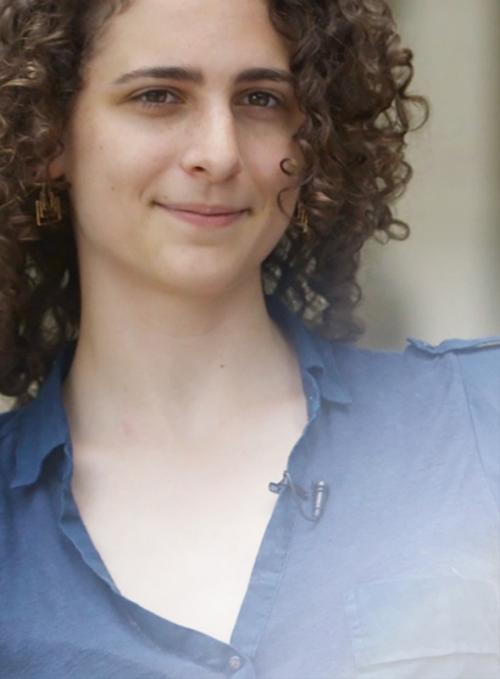Emma Gerstenzang '15
Major: Religious Studies
Hometown: Brooklyn, NY
Why did you choose Cornell?
I chose Cornell because of some intangible sense that it was a "good fit." Whatever that means to a high school senior is hard to say (some have suggested it may have to do with my love of apple cider), but I have come to appreciate that impulse. Cornell was the right choice for me because it blends a liberal arts education with a large research university, offering a breadth and depth of experience both on campus and elsewhere that, if not unique, is certainly hard to beat.
What is your main Cornell extracurricular activity - why is it important to you?
The most important activity I have been involved with at Cornell is being an EARS counselor and trainer. Working as an EARS counselor has changed the way I perceive the world around me, attuning my sense of empathy and allowing me to connect with fellow students and other members of the Cornell and Ithaca community. Working with students who may be in distress -- or who just need someone to talk to -- as well as learning to teach attitudes of empathy and active listening to others as an EARS trainer has been a formative experience.
What was your most profound turning point while at Cornell?
One important turning point for me was when I realized I could blend my interests in the social sciences with my ambitions to attend medical school in a way that would be rewarding and engaging. In other words, I realized that I did not have to sacrifice my other academic and personal interests in order to pursue a well-worn path of experience.
What, if any, Cornell-related scholarships/special financial benefits did you receive?
I became a Rawlings Presidential Research Scholar at the end of my sophomore year. This program provided financial support that allowed me to conduct research in the Mississippi Delta.
Tell us about your research project.
My research examined health beliefs and behavior in religious communities in the Mississippi Delta. For this project, I completed eight weeks of fieldwork in the Delta. During that time, I conducted a number of interviews, did participant-observer research, and volunteered in a rural health clinic. This research fits into a larger project to improve medical care in underserved regions like the Delta.
What accomplishments/activities are you most proud of while at Cornell?
I am most proud of my work as an EARS counselor and my volunteer work at the Ithaca Free Clinic, because both of these represent ways I have worked to positively affect the lives around me.
I am also proud of my research, because it represents a self-motivated effort to design and conduct a project in a place I had never been before - although of course I would not have been able to do these things without the support of a number of people and organizations at Cornell and elsewhere.
What Cornell memory do you treasure the most?
Sitting on my front porch on East Buffalo street, eating cereal in the sunshine. Others include memories from my semester abroad in the south of France, where Cornell allowed me the opportunity to immerse myself in another language and culture, and where I was able to travel to places like Morocco and Prague, as well as a myriad of other experiences at Cornell that are too numerous to list here.
Who or what influenced your Cornell education the most? How or why?
Many people have been deeply influential in sculpting my worldview whether as formal or informal mentors. Professor Jane Marie Law has molded my approach to Religious Studies with a formative methods course and has otherwise informed my academic and personal career choices; Professor Lucinda Ramberg's guidance and scholarly work shaped the development of my research and the development of my academic trajectory. Janet Shortall, Assistant Dean of Students, and EARS guru, has shaped the way I understand myself in the world. These three women, along with my family and good friends, have played instrumental roles shaping my personal, and academic development over the past four years.
How did any of your beliefs or interests change during your time at Cornell?
During my time at Cornell I believe that I have become more open-minded and empathetic. My academic interests have also shifted towards a more medical anthropology-based perspective, with a focus on health inequality in the rural United States. I have also become increasingly interested in neuroscience, physiology, and biotechnology.
What do you value about your liberal arts education?
A liberal arts education is valuable in that it teaches critical thinking adaptable to essentially any context, without getting mired down in rote memorization. It also encourages independence balanced with depth of knowledge. My liberal arts education has allowed me to think about the natural sciences and humanities, along with essentially any other field of inquiry, in reciprocal and dynamic ways.
What are your plans for next year? Where do you see yourself in 10 years?
Next year I will be working while I apply to medical school. In ten years, I would like to be practicing medicine and conducting engaged research that focuses on health inequality. I would also like to continue to travel, connecting with people in my community and around the world.




